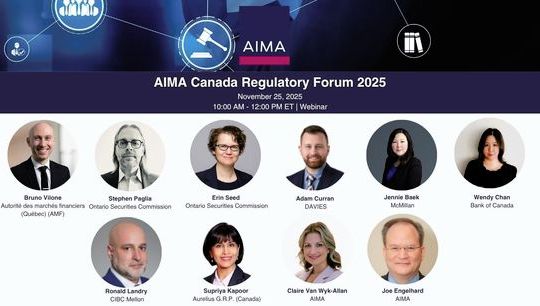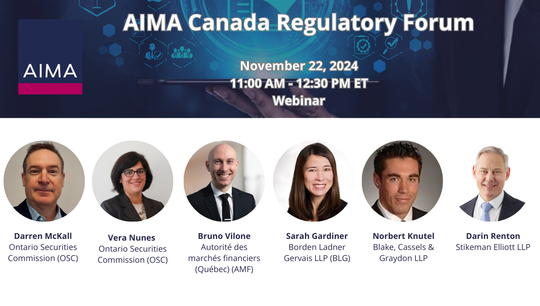New non-financial misconduct rules are coming – It is time to get prepared
By Hannah Meakin; Katie Stephen; Lucy Dodson, Norton Rose Fullbright
Published: 18 November 2024
The conduct of firms and their personnel is integral to a well-functioning, healthy financial services system. Non-financial misconduct (NFM) has long been on the FCA’s radar but more recently with the FCA’s Diversity and Inclusion Consultation Paper (CP),1 its Notice to Provide Information regarding NFM prevalence2 and its contribution to and statement published3 alongside the Treasury Committee’s “Sexism in the City” Report4 it is clear that not only does the FCA view NFM to be within its regulatory remit, but it now is very much a focus on its agenda.
Below we look at what NFM the FCA considers to be within the regulatory perimeter and provide some practical tips, including how fund managers can be prepared in this developing space and how to approach potential investigations.
What is the current state of play?
The FCA has consistently regarded NFM to be within its remit and it achieves its regulatory oversight of conduct via a number of tools, including via its supervision of firm culture generally but also more specifically through Fitness and Propriety assessments and the Conduct Rules set out in the Senior Managers and Certification Regime.
Firms must be satisfied on an ongoing basis that individuals performing Senior Management or Certification Functions are ‘fit and proper’ to carry out their roles. Guidance on relevant considerations are set out in FIT5 of the FCA Handbook. Existing guidance includes misconduct both within and outside the workplace but focusses on financial business such as fraud and there are no express examples of NFM.
In contrast to FIT guidance, all examples of inappropriate conduct set out in COCON6 focus on conduct within the workplace and in relation to the firm, for example, misleading a firm or the FCA in relation to an investigation; or failing to inform the firm under its personal account dealing rules.
Overall, there is a current lack of examples of NFM of a personal nature within the current FCA Rules. Also, if we look to historic FCA enforcement action for guidance, conclusions are somewhat contradictory. In August 2021, the Upper Tribunal stated during the Frensham7 decision that “Provisions requiring professional persons to act with integrity or to be of sufficient repute may reach into private life only when conduct that is part of a person’s private life realistically touches on their practice of the profession concerned”. However, subsequent to this, in the Zahedian case,8 the FCA stated that “Given the nature and circumstances of Mr Zahedian’s violent offences, this demonstrates a clear and serious lack of integrity… he does not have the requisite reputation to perform functions in relation to regulated activities and is likely to damage the reputation of any regulated firm.”
This has left firms unsure as to the types of NFM which are relevant and whether conduct outside of the workplace should be considered.
How is this space developing?
The FCA has taken steps to clarify what NFM is within its supervisory remit, with the regulator publishing the CP containing proposals aimed at “clarifying and strengthening its expectations around non-financial misconduct”.
The proposals explicitly include NFM within the Conduct Rules, the Fit and Proper Assessments and the suitability guidance on the Threshold Conditions with the aim of giving firms the reassurance needed to take decisive and appropriate action against employees for instances of NFM.
The proposed new COCON rules articulate the types of behaviours towards fellow members of the workforce that would breach COCON including sexual harassment, intimidating or violent conduct, malicious or insulting conduct and oppressive conduct. The FCA has clarified that NFM outside of the workplace in a person’s personal or private life is not in scope of COCON and reiterated that, except with respect to banks, the Conduct Rules are restricted to regulated activities.
Further, the FCA propose to amend the FIT Handbook to explain in more detail how NFM forms part of the Fit and Proper test for employees and senior personnel. It clarifies that bullying and similar misconduct within the workplace is relevant to FIT assessments and in contrast to the proposed COCON rules, confirms that similar serious behaviour in a person’s personal or private life are also relevant for the purposes of FIT. The proposed new guidance states that “misconduct in a person’s private or personal life or in their working life outside the regulatory system … may show that the person lacks moral soundness, rectitude and steady adherence to an ethical code. That in turn raises doubts as to whether they will follow the requirements of the regulatory system.” The resulting policy statement, updated rules and related guidance can be expected in the next couple months before the end of 2024.
Following publication of the CP, in February of this year the FCA sent a Notice to Provide Information to a number of market participants. Whilst this did not include members of the alternative investment community, it provides a further insight into the behaviour, including bullying, sexual harassment and discrimination, whether inside or outside the workplace, that the FCA considers being under the umbrella of NFM and within its remit.
Further highlighting the FCA’s commitment to tackling NFM in the workplace, is its contribution to the Treasury Committee’s “Sexism in the City” Report which was published in March 2024. In conjunction with the report’s publication, the FCA released a statement confirming that it will prioritise proposals that tighten expectations on firms to tackle misconduct such as bullying and sexual harassment.
How can firms get prepared?
It is clear that there is a revived, concerted effort to give firms the necessary impetus to confront NFM head on. In light of this and the proposed rule changes in the pipeline, firms need to put NFM at the forefront of their agendas and ensure they have appropriate systems and controls in place to address any incidences of NFM that should arise. Below are some tips on what this could look like.
Internal culture review: Firms may wish to undertake an internal review to understand how its current culture measures against the expected proposals.
Policies: Tailored policies can set out expectations and guidance for employees regarding inappropriate conduct. Guidance should clearly identify and categorise behaviours and cover both the obvious and also less clear cut scenarios to aid employees in understanding where the balance lies.
Procedures: Firms might also benefit from procedures documenting how to manage a NFM allegation promptly and fairly, including factors to be considered regarding whether a formal investigation needs to be undertaken. Issues can be resolved quickly and efficiently if they follow a well thought through path that ensures that all relevant matters, including regulatory and employment issues, have been considered.
Speak up culture: Beyond formal whistleblowing policies, fostering a firm culture of transparency and accountability from the top down not only promotes ethical behaviour and builds employee trust but also enables the identification of issues. Staff should not only be made aware of the firm’s internal whistleblowing policy but also the FCA’s whistleblowing procedures.
Training: It is essential for firms to train their staff on NFM to foster a healthy and respectful workplace, with training calibrated to different roles. Training helps employees recognise inappropriate behaviour and speak up allowing the firm to detect and address issues at the earliest opportunity.
What to do if an alleged NFM scenario arises
From the outset of a potential concern firms should consider whether there is a need to investigate. Factors to be taken into consideration include whether there is a need to notify the regulator; whether the complaint could be indicative of a wider issue representing systems and controls failings; whether there might be a Code of Conduct breach; and the extent to which senior management may be involved, either directly or indirectly.
Failing to properly investigate, or the perception of failing to investigate, can exacerbate issues or create further problems for the firm, which in some cases can be a conduct issue in itself. Where a firm takes the decision not to investigate, the rationale behind this decision should be properly documented so it can be revisited at a later date if needed.
Undertaking a robust investigation
The internal policy should be followed closely when undertaking an investigation. It is usually advisable for conflicts management and legal privilege reasons to set up a working group for this purpose.
When undertaking investigations staff wellbeing should be taken into account. Investigations can be an incredibly stressful and consideration of mental health should be at the forefront of a firm’s strategy.
Lastly, once the investigation has been completed, a follow up discussion should take place to capture any lessons learned and any process enhancements which can be fed into the firm’s policies and procedures going forward.
If you would like any assistance in preparing for the new rules or help with an investigation please contact us.
1. CP23/20 published in September 2023
2. Sent in February 2024 Letter: Notice to provide information - non-financial misconduct (fca.org.uk)
3. Published in March 2024 House of Commons Treasury Committee’s ‘Sexism in the City’ report | FCA
4. Published in March 2024 Sexism in the City - Treasury Committee (parliament.uk)
5. The FCA’s Fit and Proper test for Employees and Senior Personnel sourcebook (FIT)
6. The FCA’s Code of Conduct (COCON)
7. Final Notice 2021: Jon Frensham (fca.org.uk) in September 2021








